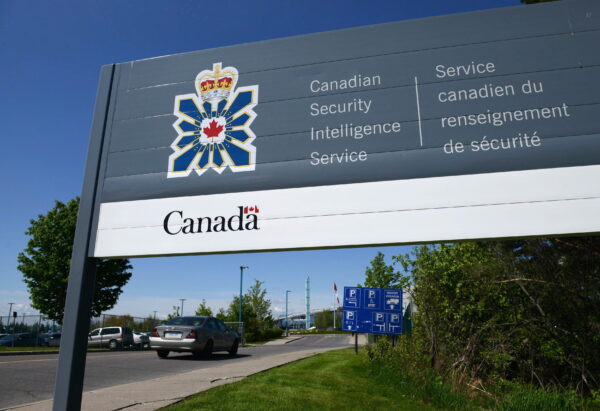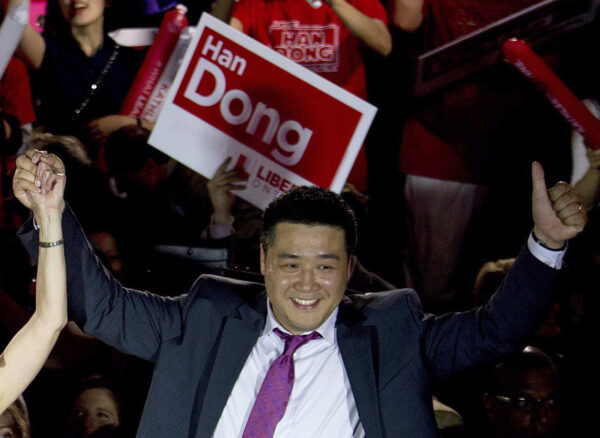Intel Leaks on Beijing’s Interference: Warnings Dismissed for Decades, Now Issue Deeply Entrenched
News Analysis
The latest intelligence leaks about China’s influence operations in Canada are part of a trend that goes back at least three decades, though it has accelerated in recent years.
As early as the 1990s, a joint report by the RCMP and the Canadian Security Intelligence Service (CSIS) was leaked to the media, warning about Beijing’s operatives and criminal gangs becoming entrenched in various Canadian sectors, but the authorities dismissed those concerns. Decades later, drug operations and money laundering became the subject of a B.C. public inquiry.
Back in 2010, long before the recent intelligence leaks concerning some federal and provincial elected officials alleged to be working with China, then CSIS-head Richard Fadden had warned about such issues. But he was condemned by a House of Commons committee for saying that some elected representatives were under the control of a foreign government. He was dragged before committee meetings in an effort to force him to retract his statements and resign.
The most recent leaks tell of an elaborate network of infiltration operations in Canada by the Chinese Communist Party (CCP) to subvert Canada’s elections and engineer the outcome to one desired by Beijing, while influencing politicians to act in CCP’s favour.
It’s not clear where the leaks are originating from. They could be from inside CSIS, from public servants in other government departments or agencies who receive intel briefings, or from officials in the intelligence and security agencies of Canada’s allies who are concerned about inaction on security risks in Canada.
Here’s a look at leaks about Chinese interference, from the most recent to decades past, and the authorities’ response to them.
Planning for the Future
One of the most recent intelligence leaks relates to Zhang Bin, a wealthy businessman linked to the CCP who attended a controversial cash-for-access event with Prime Minister Justin Trudeau in May 2016.
A sign for the Canadian Security Intelligence Service building in Ottawa in a file photo. (Sean Kilpatrick/The Canadian Press)
A Feb. 28 Globe and Mail report says Zhang was instructed by a Chinese diplomat in 2014 to donate $1 million to the Pierre Elliott Trudeau Foundation and told he would be reimbursed by Beijing. The two reportedly discussed the upcoming 2015 federal election and the possibility that the Liberals could beat the Conservatives.
Zhang was a member of the 12th National Committee of the Chinese People’s Political Consultative Conference, a political advisory body within the communist regime. He was also president of the China Cultural Industry Association (CCIA). The Epoch Times contacted Zhang and the PMO for comment but didn’t hear back.
Following the May 2016 fundraiser, Zhang went on to donate $1 million to “honour the memory and leadership” of former prime minister Pierre Trudeau, the Globe says. Of that amount, $200,000 went to the Trudeau Foundation, $50,000 toward building a statue of Pierre Trudeau, and $75,000 to the University of Montreal’s faculty of law, where the former prime minister had been a student and was later an instructor.
The PMO has said that Trudeau wasn’t aware of Zhang’s donation and that he is not involved in the affairs of the foundation while he is serving in federal politics. The Pierre Elliott Trudeau Foundation has said that it is returning Zhang’s donation.
2019 Election
The recent wave of reports on intelligence leaks started with a Nov. 7, 2022, Global News article that said Trudeau was briefed in January 2022 on a Beijing-directed election interference network.
The article said the CCP funded at least 11 federal candidates in the 2019 election and worked to place agents in MPs’ offices to influence policy-making. It said the network includes members from both the Liberal and Conservative parties.
Several candidates in that year’s elections met with officials from the United Front Work Department, according to the article. The United Front is “a primary foreign interference tool” for Beijing, says a post by Public Safety Canada citing research by think tanks.
The Global article adds that following a House of Commons resolution in February 2021 to declare the CCP’s persecution of Uyghurs an act of genocide, regime agents conducted in-depth background research on MPs who voted in support of the resolution. The research included determining what the major industries and businesses in the targeted MPs’ ridings were and whether they had any links to China. The intention was to see if the local economies of the politicians who are not friendly to China could be used as leverage.
The article says that an election-campaign staff member for a 2019 federal election candidate was directed by the Chinese Consulate in Toronto to control and monitor the candidates’ meetings and prevent such engagements as meetings with representatives of Taiwan.
The intelligence briefs also reportedly outline China’s efforts to infiltrate and surveil Chinese diaspora communities in Canada.
A follow-up article by Global News on Feb. 24 said that Liberal MP Han Dong is one of the at least 11 federal candidates in the Toronto area who were supported by Beijing in the 2019 election, based on leaked intelligence information.
Han Dong, now a federal Liberal MP, celebrating with supporters as a provincial Liberal candidate in the Toronto area on May 22, 2014. (Nathan Denette/The Canadian Press)
Read More Here: Epoch Times






